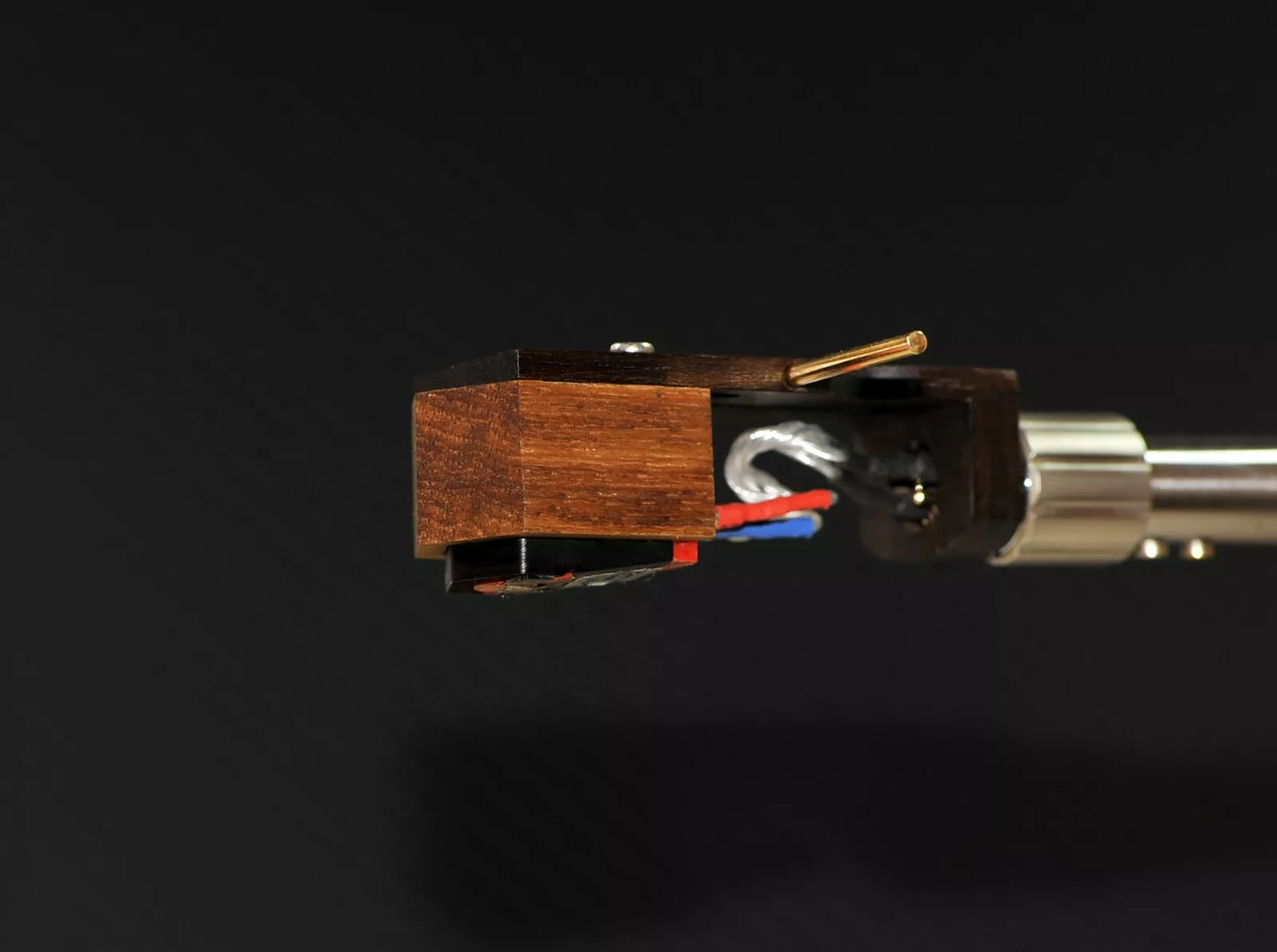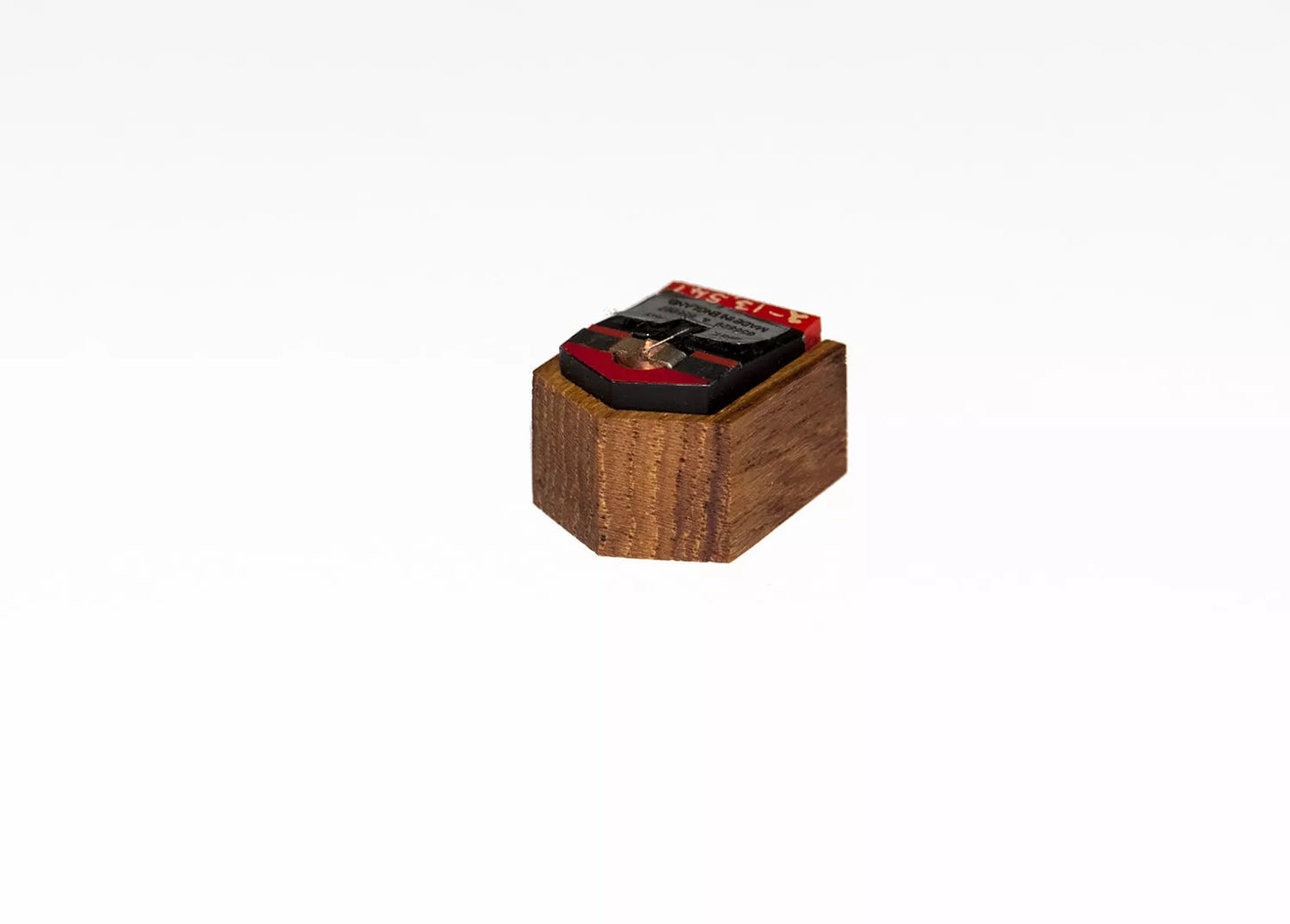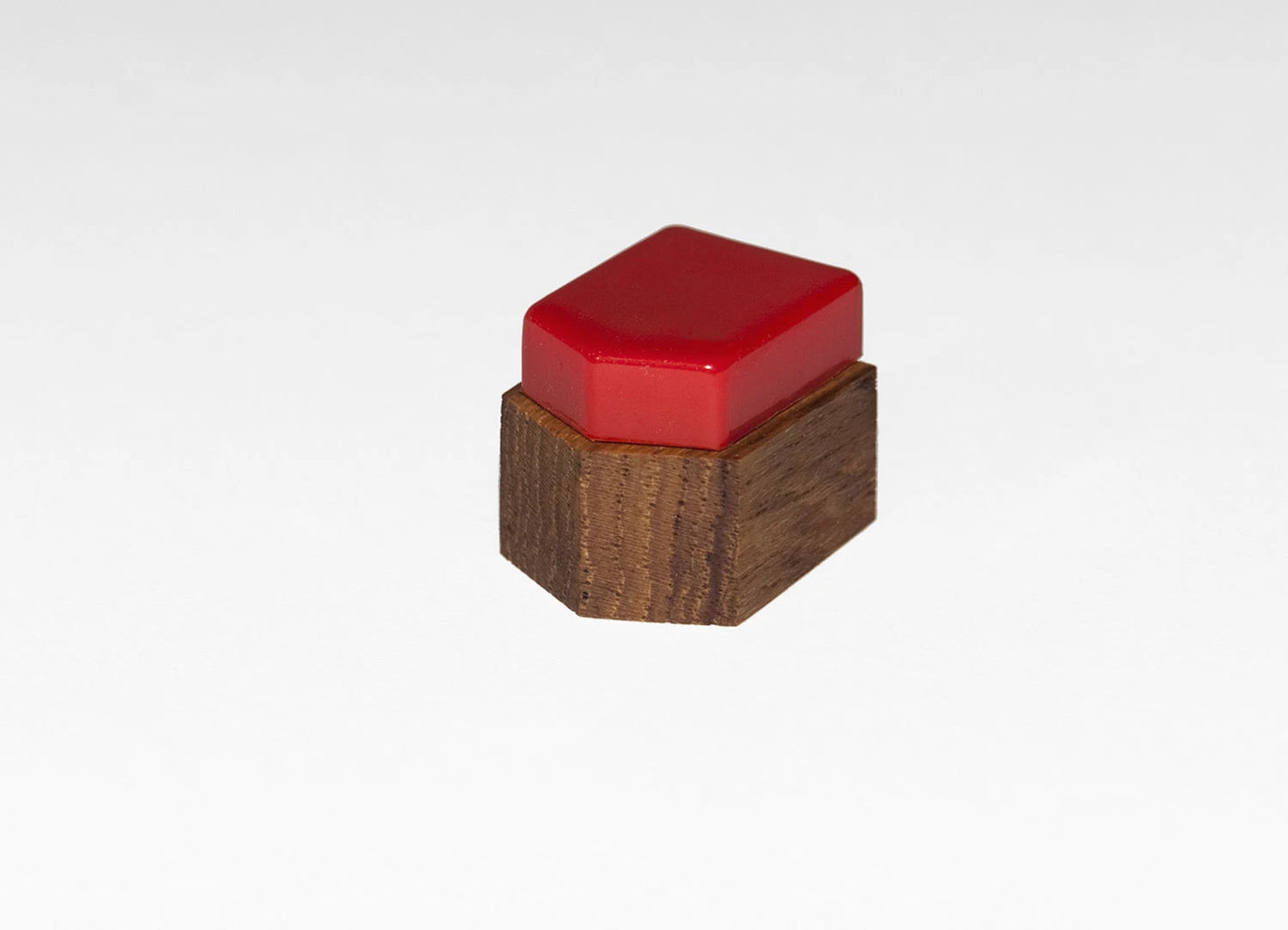Custom-Made Teak Wood Body for Decca London Black / Blue / Grey / Maroon / Gold / Super Gold
Custom-Made Teak Wood Body for Decca London Black / Blue / Grey / Maroon / Gold / Super Gold
Custom-Made Teak Wood Body for Decca London Black / Blue / Grey / Maroon / Gold / Super Gold
A teak wood body for a Decca London cartridge produces a sound that is balanced, warm-neutral, and slightly open, with a touch of vintage character. Teak is a medium-density hardwood known for its oil-rich grain and subtle damping, and when used for an audio application like a cartridge body, it provides a natural tone with good harmonic content and a touch of smoothness.
🔊 Sonic Characteristics of Decca London with Teak Wood Body:
| Sonic Aspect | Effect |
|---|---|
| Bass | Rounded, slightly soft, with good warmth and body |
| Midrange | Smooth, slightly warm, pleasantly colored — musical and forgiving |
| Treble | Softened, with less edge and sparkle than denser woods |
| Dynamics | Good, but not as snappy as with ebony or panzerholz |
| Soundstage | Natural, modestly wide, with decent depth but not hyper-precise |
| Tonal Balance | Warm-leaning neutral, with gentle upper-mid smoothness |
🪵 Why Teak Has This Sound:
-
Density: Moderate (~0.65 g/cm³)
-
Natural oils: Teak contains its own resins, which give it internal damping properties
-
Used in vintage loudspeakers and instrument cabinets — chosen for its tone-preserving qualities without strong coloration
🎧 What Teak Does to the Decca London
The Decca London is famously vivid and dynamic, but also can sound aggressive or edgy in certain systems. A teak body softens this edge without dulling the life, bringing a more organic tone:
-
Slightly taming the high-end, so cymbals and strings are less sharp
-
Giving voices and acoustic instruments a warmer presence
-
Reducing transient glare, which helps with fatigue on long listening sessions
-
Making the cartridge sound more relaxed and vintage-like, especially in jazz, vocals, and chamber music
✅ Best Use Cases:
-
Vintage or tube-based systems where a full wooden synergy is desired
-
Listeners who want to keep Decca’s musicality but tame its forwardness
-
Systems with lightweight tonearms where very heavy woods (like ebony) are too much
-
Rooms that are reflective or systems that already lean bright
🆚 Teak Compared to Other Woods:
| Wood Type | Tonal Bias | Damping | Dynamics | Detail | Feel |
|---|---|---|---|---|---|
| Teak | Warm-neutral | ★★★☆☆ | ★★★☆☆ | ★★★☆☆ | Relaxed, vintage-organic |
| Ebony | Dark-neutral | ★★★★☆ | ★★★★★ | ★★★★★ | Precise, tight, elegant |
| Cocobolo | Warm-rich | ★★★★☆ | ★★★☆☆ | ★★★★☆ | Romantic, lush |
| Panzerholz | Ultra-neutral | ★★★★★ | ★★★★★ | ★★★★★ | Clinical, controlled |
| Walnut | Slightly warm | ★★★☆☆ | ★★★☆☆ | ★★★☆☆ | Natural, earthy |
| Karelian Birch | Light and open | ★★☆☆☆ | ★★☆☆☆ | ★★☆☆☆ | Airy, colorful |
🔚 Summary:
A teak wood body on the Decca London delivers a smooth, musical, vintage tone — less aggressive than some other woods, with good warmth and organic flow. It’s not as resolving as ebony or panzerholz, but it makes Decca’s energy more listenable and charming, especially in long sessions or on revealing systems.
Product features
Product features
Materials and care
Materials and care
Merchandising tips
Merchandising tips
Share





